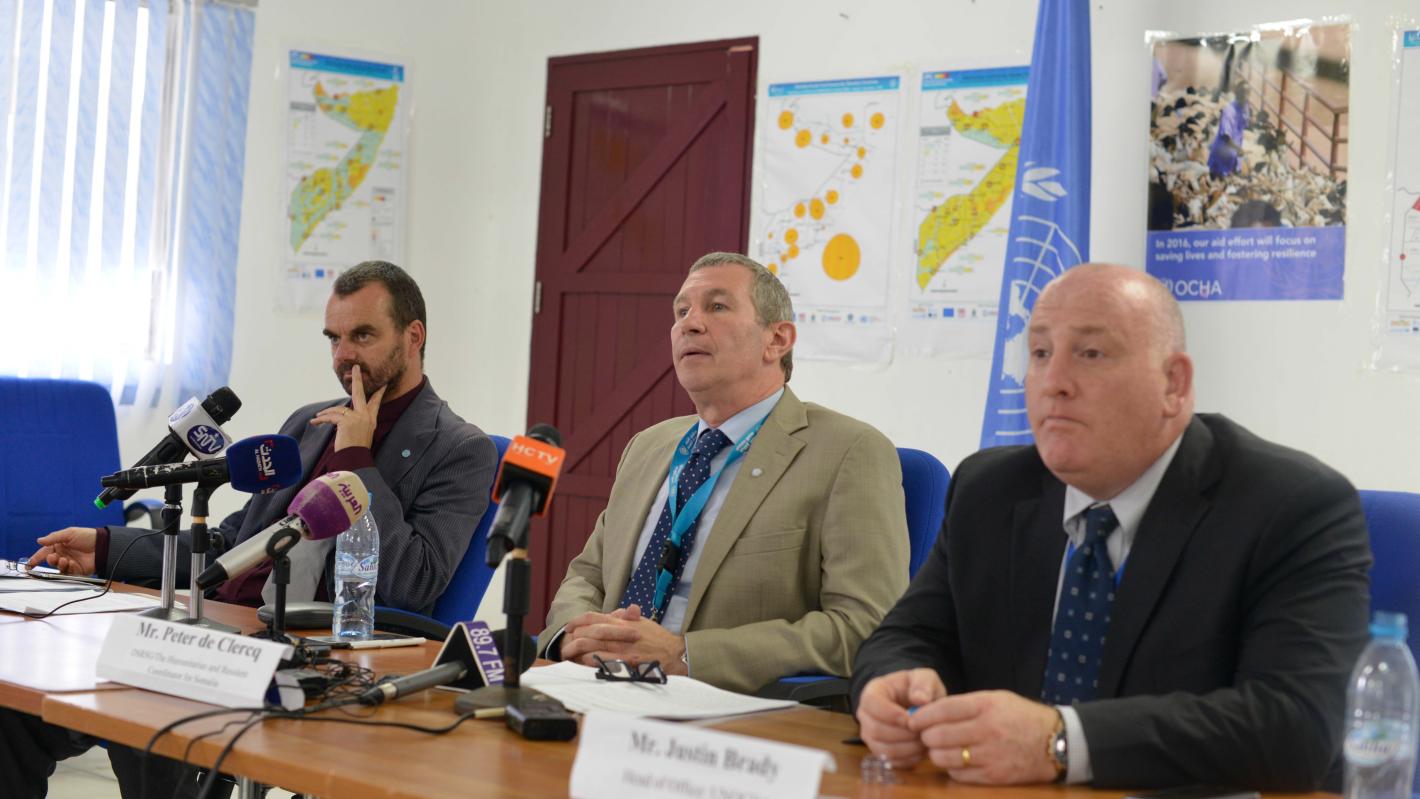The United Nations is appealing for humanitarian assistance for five million people in Somalia facing hunger caused by acute food shortages.
The latest Food Security and Nutrition Outlook for August to December 2016 released in Mogadishu today contains grim statistics on the state of hunger in Somalia.
At least 1.1 million people face an acute food crisis, while another 3.9 million people are classified as food-stressed, according to the report. The report notes that 43,000 more people will be in an emergency situation before the end of the year.
The figures reveal a major deterioration of food security conditions in the Horn of Africa country, with more people currently facing acute food crisis and emergencies in comparison to six months ago.
The nationwide seasonal assessment attributes the worsening food security situation to poor rains between April and June, flooding in some parts of the region, trade disruption and the continued displacement of people. According to the report, the onset of the rains came late in most parts of the country, exacerbating existing shortages of food.
Southern Somalia, a major crop producing region, recorded a significant drop in cereal production, the report states. In addition, flooding in agricultural areas along the Shabelle and Jubba rivers contributed to the deteriorating food security situation in Jubbaland and the Hiiraan and Middle Shabelle regions.
The latest October to December forecast for Somalia indicates that the country will experience below-average rainfall, which could further affect crop production and available pasture for livestock, thus negatively affecting the food situation.
“Life-saving humanitarian assistance is needed to support more than 1.1 million people,” the report states.
“Livelihood support is needed for nearly 3.9-million people who have been classified as stressed in order to protect their livelihoods and increase their resilience against shocks,” the report adds.
“Urgent action is required to address humanitarian needs and help people who are already struggling to find enough food to make it through the day. Without adequate resources, more people, especially those who are unable to meet their daily food needs, will slide into critical food security situation,” Peter de Clercq, the Deputy Special Representative of the United Nations Secretary-General for Somalia (DSRSG), who is also the United Nations Resident and Humanitarian Coordinator for Somalia, said at a press conference today in Mogadishu.
Mr. de Clercq said the UN is working with other partners to find durable solutions to the plight of internally displaced persons.
Justin Brady, the Head of United Nations Office for the Coordination of Humanitarian Affairs (UNOCHA) in Somalia, lamented that the insurgency by Al-Shabaab militants continues to disrupt trade and commerce, further hampering efforts to alleviate the food crisis.
“A lot of the responsibilities for the humanitarian situation are falling more and more on the shoulders of government authorities as they gain capacity in the country, both at the federal level and at the state level. But we do have large swathes of the country which are under the control of Al-Shabaab, where access is limited and we have not yet been able to make the case,” said Mr. Brady.
The Food Security Assessment Report was released by the Food Security and Nutrition Analysis Unit for Somalia, a project managed by the United Nations Food and Agriculture Organization and the Famine Early Warning Systems Network, which is funded by the US Agency for International Development and European partner agencies.






